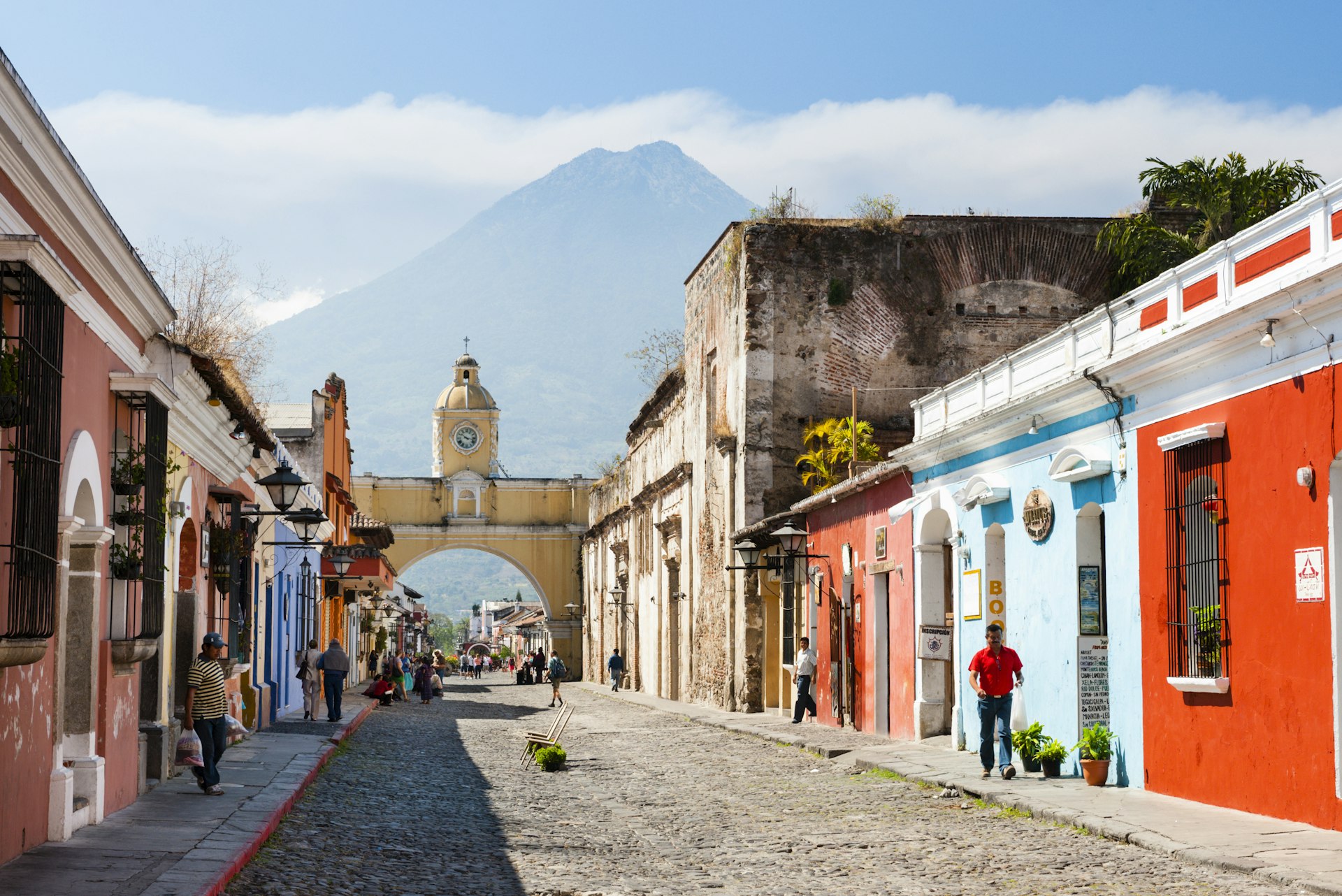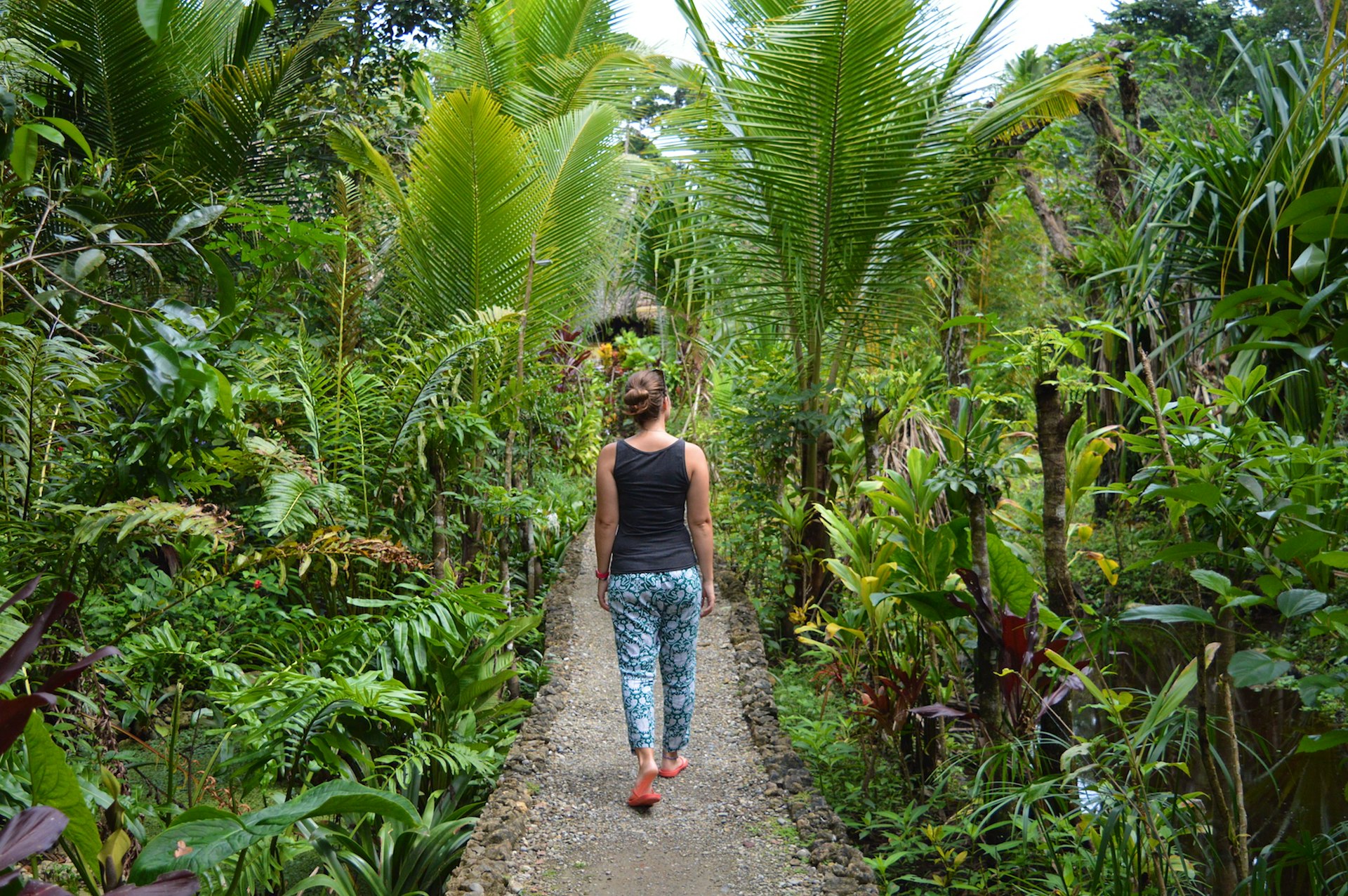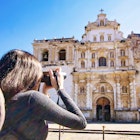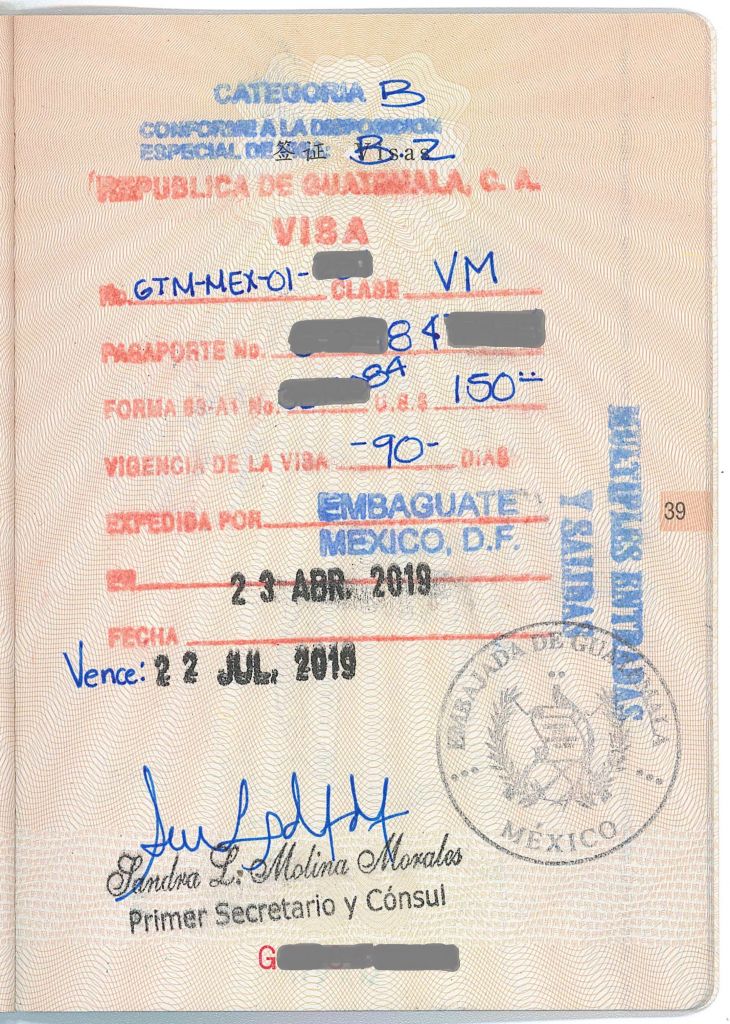Things to know before visiting Guatemala

Nov 2, 2023 • 7 min read

Guatemala is a fascinating country with so much to see – here are tips that will help you make the most out of your trip © Fernanda Reyes / Getty Images
Guatemala has been my second home for nearly two decades, and the country still captivates me: the landscape with its volcanoes and coffee trees, the lakes and rivers and tropical beaches, Mayan ruins peeking out above the treetops.
Mayan traditions are still alive and well, and the weather’s almost always fine in the Land of Eternal Spring. However, there's information travelers to Guatemala should know before visiting if you really want to enjoy all it has to offer.

Get your shots before you leave
If you come in from a country where yellow fever is endemic, you’ll need to be vaccinated against this mosquito-borne disease. It’s also recommended that you’re up to date with your typhoid, hepatitis A and B, rabies, flu and TDaP (tetanus, diphtheria and whooping cough) shots. It’s best to visit a travel clinic at least a month before your trip if you need to get vaccinated so there’s enough time to give you full protection. Some vaccines, like hepatitis B and rabies, require follow-up doses.
Bring your own bug spray if you like it DEET free
Most of the things you may have forgotten at home are available in Guatemala, but some items are more difficult to find or very expensive. Bug spray is easy to find but usually contains DEET. The locally produced DEET-free repellents aren’t very effective, so you’ll want to bring a good brand from home. The mosquito-borne diseases of malaria, zika, dengue fever and chikungunya are all endemic in parts of Guatemala.

Don't go without sunscreen
Sunburn is a real risk if you spend time outside. Some of the larger stores and pharmacies sell chemical sunscreens, but these generally don’t have an SPF higher than 25. The stronger stuff and natural mineral sunscreens are normally only available in a handful of specialty health stores, with limited options and much higher prices. Pack enough of your favorite sunscreen, and remember to use it.
Your preferred feminine hygiene products might be hard to find
In terms of feminine hygiene products, most shops stock pads only. Some larger stores and pharmacies stock tampons with applicators. You might find the kind without an applicator, as well as menstrual cups, in specialty health stores, but the price will reflect the fact that they’re imported.
Pack lightweight clothing
Because Guatemala’s weather is mainly warm and humid, light clothing that dries quickly is more useful than jeans, which are heavy, too warm for the climate and take forever to dry. For cooler days, a light sweater or jacket is generally sufficient. If you need more clothes than you brought or just a wardrobe revamp, most towns have a paca , a place where you can buy secondhand clothing for as little as Q5 (less than US$1).

When in doubt, cover up
Guatemalans tend to be religious: practicing Catholic, evangelical or, to a smaller extent, traditional Mayan belief systems. That deep-rooted faith also means that they are generally more socially conservative, especially in Maya-dominated communities.
Men don’t go shirtless unless they’re at the beach. Women prefer knee-length shorts and oversized T-shirts to bathing suits. In the large cities and Ladino-dominated areas, people are more open to shorts, shorter skirts and tank tops. In the Maya communities, however, the women usually wear traditional clothing in public, and their cortes – a garment worn as a skirt – always fall below the knee.
If you’re not sure whether your clothing is appropriate, it’s best to cover up: put on a shirt and don’t wear anything shorter than mid-thigh. If you visit a church or other spiritual site, it’s respectful to cover your shoulders and arms.
Avoid illegal drugs
Some bars and hostels turn a blind eye to the use of marijuana and other illegal drugs. However, police raids on bars and hostels aren’t uncommon, and if you’re found with any illegal substances in your possession, you will be arrested.
Don’t drink the water
Tap water in Guatemala is not safe to drink. To reduce your risk of getting parasites, stick to purified water: bottled water is readily available everywhere. Hostels and restaurants will usually let you refill your water bottle, sometimes for a small fee. You may also want to skip the raw salad unless you’re sure that purified water was used for washing produce.
If you do contract parasites, a trip to the pharmacy is often all you need to get the right treatment.
Guatemalans can get personal but don’t mean harm
It’s not unusual in Guatemalan culture to call people by some physical attribute. Being called guapo or guapa (attractive one) can feel uncomfortable at worst, but being called gordo or gorda (fat one) may sting. If you don’t like the nickname you’ve been given, try not to act offended; the trick is to let it slide and to tell the person your name instead.
You may also find that Guatemalans like to ask personal questions: how old you are, how many children you have, where you are going. If you answer in the negative as to whether you have a spouse, this may even lead to questions about the status of your virginity, no matter your age. If you feel uncomfortable, remain polite, joke, and change the subject.
Politeness goes a long way – most of the time
Guatemalans appreciate politeness. A friendly buenas (good morning/afternoon/evening) or hola (hello) creates a good first impression. Por favor or simply porfa (please) and gracias (thank you) show that you were raised right. If you learn to say thank you in the Mayan dialect spoken at your destination, it’s guaranteed to elicit a smile. Ask locals how to say thank you in their language, repeat the phrase back to them and then use it for as long as you’re in that town.
One area where being too polite will do you no good, though, is standing in line. People will patiently wait in line in a more formal setting, such as at the clinic or a government office. At the market or in a neighborhood tienda (corner store)? If you don’t speak up, somebody may very well step in front of you as if it’s the most normal thing in the world – and in Guatemala, it is.

The travel experience might be different for female visitors
The culture of machismo is rife in Guatemala. Local women generally don’t frequent bars and cantinas on their own because of the risk of sexual harassment and violence. Even in pairs, women may face harassment. If you want to go out drinking, it’s best to do it in a mixed group: the presence of men in your group will deter those who won’t take no for an answer.
Women travelers may also encounter micro-aggressions like being talked over or ignored in favor of the men in their group. They’re also held to a higher standard than male travelers when it comes to dress or how they behave in bars and at parties. Sexual harassment and violence are real risks, and the conviction rate for offenders is low.
However, as a woman traveler, you may find real solidarity – local women tend to be protective of female tourists traveling on their own. If a situation makes you feel uncomfortable, try to move closer to groups of other women. And who knows: you might make some real connections and make some new friends!
The LGBTQI+ scene is small
Same-sex relationships are legal in Guatemala but frowned upon. The LGBTIQ+ scene in the country is small and mostly confined to the largest cities and tourist areas. While violence against LGBTIQ+ tourists is rare, local activists have been attacked. Take your cues from your surroundings and watch how the local community behaves towards transgender people or public displays of affection between same-sex couples, for instance. If you’re unsure, err on the side of caution.

Always hike with a local guide
Some tourists who come to Guatemala climb volcanoes on their own with no issues. However, hiking alone is not a good idea because of the risk of getting robbed, injured or lost. Use local guides and follow their instructions: if they say they’re not going any farther, turn around with them. Guides know what the risks are, and the risks are very real – Guatemala has seen several high-profile deaths of hikers in recent years. Rescue teams are normally made up of volunteers using donated gear. When they have to risk their lives to rescue you, the decent thing to do is to reimburse them for their trouble.
To stay safe, don't take unnecessary chances
Is Guatemala safe? As a tourist, you’re unlikely to run into serious trouble. That said, listen to local advice about areas to avoid, always be aware of your surroundings and never leave your belongings or your drinks unattended.
Guatemala has a reputation for corruption and poor enforcement of laws. You may hear of travelers who bribed officials and got away with it. You may also hear of travelers who weren’t so lucky, so just don’t do it.
This article was first published March 2022 and updated November 2023
Explore related stories

Destination Practicalities
Jan 7, 2024 • 3 min read
Honduras has a wealth of attractions awaiting you, so don't allow visa drama to delay your trip. Find out if you need one and how to get it.

Dec 26, 2023 • 7 min read

Nov 7, 2023 • 6 min read

Nov 5, 2023 • 11 min read

Oct 27, 2023 • 7 min read

Oct 18, 2023 • 7 min read

Oct 8, 2023 • 4 min read

Oct 5, 2023 • 6 min read

Aug 24, 2023 • 4 min read

Aug 17, 2023 • 5 min read

- Immigration
Essential Visa Rules and Required Documents for Travel to Guatemala
When planning a trip to guatemala, it is important to be aware of the visa rules and necessary documents. to enter the country, visitors typically need a valid passport with at least six months of validity, proof of onward travel, and may need to apply for a tourist visa upon arrival. familiarizing oneself with these requirements will make for a smooth travel experience to guatemala..

Key Takeaways:
- Travelers from many countries can enter Guatemala without a visa for stays of up to 90 days.
- Required documents for entry include a valid passport, return ticket, sufficient funds, and yellow fever vaccination certificate.
- Visitors can extend their stay beyond 90 days by visiting the Guatemalan immigration office and providing necessary documents and a fee.
Visa Rules for Traveling to Guatemala
If you’re planning a trip to Guatemala, understanding the visa requirements is crucial to ensure a smooth travel experience. Here, we’ll provide you with the essential information about the visa rules and the necessary documents for visiting this beautiful Central American country.
Understanding Guatemala’s Visa Policy
Guatemala’s visa policy is straightforward and designed to be visitor-friendly. Visitors from many countries can enter Guatemala without a visa for stays of up to 90 days. This includes travelers from the United States, Canada, and most European countries. Before your trip, it’s important to check the latest visa requirements from Guatemala’s official immigration resources or your local Guatemalan consulate to see if your home country is on the visa-exempt list.
Required Documents for Entry
When traveling to Guatemala, having the right documents is key. Here’s what you need to prepare:
- Passport : Your passport must be valid for at least six months from the date of entry. Make sure to check the expiry date before you travel.
- Return Ticket : Although not always checked, immigration officials may ask to see proof of onward travel, so have a return ticket or an itinerary for leaving Guatemala ready.
- Sufficient Funds : Visitors may need to show they have enough funds to cover their stay in Guatemala. Carrying a credit card or some cash is advisable.
- Yellow Fever Vaccination Certificate : If you’re coming from a country with a risk of yellow fever, you’ll need a certificate to prove you’ve been vaccinated.

Additional Tips for a Hassle-Free Entry
To ensure your entry into Guatemala is as smooth as possible, keep these tips in mind:
Also of Interest:
New umrah visa rule: 3-month validity from issuance date, i-140 renewal after job transfer: is it necessary.
- Make copies of your important documents, like your passport and vaccination certificate, and keep them separate from the originals.
- Always fill out your immigration card correctly and completely. This small piece of paper is important for a trouble-free entry and exit.
- Be aware of the items you’re bringing into the country. Guatemala has restrictions on items like food and agricultural products.
Staying Longer Than 90 Days
If you wish to stay in Guatemala beyond the standard 90 days, you can usually extend your stay for another 90 days at the Guatemalan immigration office (Dirección General de Migración). Here you’ll need:
- A passport valid for the extended period
- Proof of financial means to support your stay
- A small fee
Consular Support and Further Assistance
For additional support and clarification on visa rules, it is a good idea to contact the nearest Guatemalan consulate or embassy. They can provide the most accurate and up-to-date information regarding your visit.
Traveling to Guatemala with Peace of Mind
By adhering to Guatemala’s visa regulations and preparing the required documents, you’ll set yourself up for a fantastic experience exploring the rich culture and stunning landscapes of Guatemala. Remember, visa rules can change, so it’s crucial to verify information with the official sources before you travel.
Enjoy your Guatemalan adventure with confidence, knowing that you have everything you need for a comfortable and legal stay. Safe travels!
And there you have it, my wanderlust-filled friends! The ins and outs of Guatemala’s visa rules. Now that you’re armed with this knowledge, you’re ready to embark on your Central American escapade. Remember, stay organized, follow the guidelines, and double-check everything. And if you want more travel goodness, head over to visaverge.com for all the visa info you could ever dream of. Happy travels, amigos!
FAQ’s to know:
FAQ 1: What are the visa requirements for traveling to Guatemala?
- Answer: Visitors from many countries, including the United States, Canada, and most European countries, can enter Guatemala without a visa for stays of up to 90 days. However, it’s important to check with Guatemala’s official immigration resources or your local Guatemalan consulate to confirm if your home country is on the visa-exempt list.
FAQ 2: What documents do I need to enter Guatemala?
- Answer: When traveling to Guatemala, you will need the following documents: a valid passport (with at least six months of validity remaining), proof of onward travel (such as a return ticket or itinerary), sufficient funds to cover your stay, and a yellow fever vaccination certificate if you are coming from a country with a risk of yellow fever.
FAQ 3: How can I stay in Guatemala beyond the standard 90 days?
- Answer: If you want to stay in Guatemala for more than 90 days, you can typically extend your stay for an additional 90 days at the Guatemalan immigration office. To do so, you will need a passport valid for the extended period, proof of financial means to support your stay, and a small fee. It’s recommended to contact the nearest Guatemalan consulate or embassy for further assistance and the most accurate information.
What did you learn? Answer below to know:
- True or False: Visitors from the United States can enter Guatemala without a visa for up to 90 days.
- What is a necessary document for entering Guatemala? a) Proof of onward travel b) Travel insurance c) Hotel reservation d) Driver’s license
- How can you extend your stay in Guatemala beyond 90 days? a) Contact the nearest Guatemalan consulate or embassy b) Pay a fine at the airport upon exiting the country c) Visit the Guatemalan immigration office with the required documents d) Leave the country and reenter after a short period
Verging Today

The Dark Side of Desi Consultancies in the USA

Indian Graduate Students Caught Shoplifting in ShopRite U.S.

Saudi Arabia Announces Umrah Visa Expiry Date for Pilgrims

U.S. Visa Invitation Letter Guide with Sample Letters

How NRIs Can Vote in 2024 Lok Sabha Elections: Your Guide to NRI Voting Rights
Sign in to your account
Username or Email Address
Remember Me
Update April 12, 2024
Information for u.s. citizens in the middle east.
- Travel Advisories |
- Contact Us |
- MyTravelGov |
Find U.S. Embassies & Consulates
Travel.state.gov, congressional liaison, special issuance agency, u.s. passports, international travel, intercountry adoption, international parental child abduction, records and authentications, popular links, travel advisories, mytravelgov, stay connected, legal resources, legal information, info for u.s. law enforcement, replace or certify documents.
Share this page:
Guatemala Travel Advisory
Travel advisory july 17, 2023, guatemala - level 3: reconsider travel.
Reissued with obsolete COVID-19 page links removed.
Reconsider travel to Guatemala due to crime . Some areas have increased risk. Read the entire Travel Advisory.
Do not travel to:
- San Marcos Department (except the city of San Marcos) due to crime .
- Huehuetenango Department (except the city of Huehuetenango) due to crime .
- Zone 18 and the city of Villa Nueva in Guatemala City due to crime .
Country Summary: Violent crime such as extortion, murder, armed robbery, carjacking, narcotics trafficking and gang activity are common in Guatemala. Local police may lack the resources to respond effectively to criminal incidents resulting in a low arrest and conviction rate. Guatemala’s National Tourist Assistance Program ( PROATUR ) provides 24-hour emergency assistance and routine guidance to tourists. PROATUR also provide additional security in locations frequented by tourists. The call center is staffed with Spanish and English speakers and can be reached 24/7 by calling 1500 or +502-2290-2800.
U.S. government personnel and family members are prohibited from traveling to/throughout the above-mentioned areas for personal travel but are permitted to travel throughout the rest of Guatemala, including tourist destinations such as Tikal, Antigua, Lake Atitlán, and Pacific coast areas in the Santa Rosa and Escuintla Departments.
Read the country information page for additional information on travel to Guatemala.
If you decide to travel to Guatemala:
- When traveling to Lake Atitlán, use certified tourist providers and travel between villages on the lakeshore by chartered boat, as perimeter paths pose a serious crime risk and are not easily accessible by emergency services. Hiking in the area, while popular, is best undertaken with the assistance of a local guide to ensure safety, as criminals are known to target some routes.
- When visiting Pacific coast beaches and resorts in the Santa Rosa and Escuintla Departments, arrange travel through hotel, resort, or charter agents. We recommend traveling to and from hotels, resorts, and fishing charters via road from Guatemala City during daylight hours only.
- Visitors are strongly advised to avoid swimming in the Pacific Ocean, since currents and undertows are strong, and beaches lack adequate lifeguards or emergency response.
- Visitors should not leave drinks unattended in bars and restaurants and are advised to decline invitations from strangers to private parties or gatherings.
- Consider staying in hotels or other lodging facilities that offer secure parking, doormen, and a dedicated and professional security staff.
- Request security escorts, which are available for tourist groups, from the Guatemalan Tourism Institute ( INGUAT ).
- Be aware of your surroundings and avoid walking or driving at night.
- Do take radio-dispatched taxis (Taxi Amarillo), INGUAT-approved taxis from the “SAFE” stand at the airport, hotel taxis, vetted private drivers, and/or Uber.
- Do not take public transportation, including white car taxis. U.S. government personnel and their family members are prohibited from using these forms of transportation.
- Do not attempt to hike walking trails or volcanoes without the services of a qualified local guide. Robberies are commonplace, and emergency response is lacking.
- Do not physically resist any robbery attempt.
- Do not use public ATMs.
- Do not display signs of wealth, such as wearing expensive watches or jewelry, and avoid using mobile devices in public.
- Enroll in the Smart Traveler Enrollment Program (STEP) to receive Alerts while in Guatemala and make it easier to locate you in an emergency.
- Follow the Department of State on Facebook and Twitter .
- Review the Country Security Report for Guatemala.
- Prepare a contingency plan for emergency situations. Review the Traveler’s Checklist .
- Visit the CDC page for the latest Travel Health Information related to your travel.
San Marcos Department – Level 4: Do Not Travel
All U.S. government personnel and family members are prohibited from traveling to San Marcos Department for personal travel, except for the city of San Marcos. Narcotics trafficking is widespread, and large portions of the department are under the influence of drug trafficking organizations. Several municipalities lack police presence, and local police may lack the resources to respond effectively to serious criminal incidents. Avoid areas outside of major roads and highways. Visit our website for Travel to High-Risk Areas .
Huehuetenango Department – Level 4: Do Not Travel
All U.S. government personnel and family members are prohibited from traveling to Huehuetenango Department for personal travel, except for the city of Huehuetenango. Narcotics trafficking is widespread, and large portions of the department are under the influence of drug trafficking organizations. Several municipalities lack police presence, and local police may lack the resources to respond effectively to serious criminal incidents. Avoid areas outside of major roads and highways.
Visit our website for Travel to High-Risk Areas .
Zone 18 and Villa Nueva within the Guatemala Department – Level 4: Do Not Travel
U.S. government personnel and family members are free to travel within Guatemala City except for zone 18 and the municipality of Villa Nueva. The following zones in Guatemala City are of elevated concern due to crime: 5, 6, 7, 12, 13, 17, 19, 21, and 24. U.S. citizens should take appropriate security measures when traveling to and from the airport such as only using vetted transportation services, not displaying valuables or other signs of wealth, refraining from using mobile devices in public, and not lingering outside the airport. U.S. citizens are advised not to hail white-car taxis on the street in Guatemala City. Use radio-dispatched taxis (Taxi Amarillo), INGUAT-approved taxis from the “SAFE” stand at the airport, hotel taxis, vetted private drivers, or Uber.
Travel Advisory Levels
Assistance for u.s. citizens, guatemala map, search for travel advisories, external link.
You are about to leave travel.state.gov for an external website that is not maintained by the U.S. Department of State.
Links to external websites are provided as a convenience and should not be construed as an endorsement by the U.S. Department of State of the views or products contained therein. If you wish to remain on travel.state.gov, click the "cancel" message.
You are about to visit:

Guatemala Visit Visa
All About the Guatemala Visa
Are you thinking of visiting this Central American country in the near future? In addition to well-preserved Mayan monuments and stunning landscapes, this small nation has an open visa policy.
At present, foreign visitors from over 80 countries can enjoy this nation’s volcano-ringed lakes and surfer-friendly waves without a travel authorisation. This includes the US, UK, most European countries and Canada. With just a valid passport, these eligible nationals can explore this country, from its Pacific beaches to its Caribbean coast, for up to 90 days within a 180-day period.
If you are not exempt from a tourist visa, then you must submit an application to the nearest embassy or consulate before you can venture into Guatemala’s lush jungles or ancient cenotes (sinkholes). At the moment, there is no eVisa for Guatemala available.
Fortunately, at Byevisa, we want to make getting a Guatemala visa easy, so we’ve done the hard work of researching the travel policy details. The result is an informative guide with all the best tips on how to travel to Guatemala with a visa.
What are you waiting for? Keep reading and see how we can make your upcoming trip to Guatemala as breezy as a day on Monterrico beach.
- 1 Guatemala Visa Requirements and Eligibility
- 2 Guatemala Visa Application Process
- 3 Guatemala Visitor Visa Form and Documents
- 4 Guatemala Tourist Visa Status Check
- 5 How Much Does a Guatemala Visa Cost?
- 6 More Information on How to Get a Visa for Guatemala
Guatemala Visa Requirements and Eligibility
Fortunately, many nationalities are visa-exempt for visits of 90 days within a 180-day period. Within this time frame, foreign visitors may leave and enter the country multiple times.
In this case, all you need to explore this country’s colourful colonial streets is a passport valid at least 6 months past your travel dates and with 1 blank page per entry. You will also need to hold proof of a return or onward flight.
To see if your country is visa-free, just select your nationality in our eligibility checker tool.
Or, find your nationality in this list below:
Andorra Antigua and Barbuda Argentina Australia Austria Bahamas Bahrain Barbados Belgium Belize Brazil Brunei-Darussalam Bulgaria Canada Chile Colombia Cyprus Costa Rica Croatia Czech Republic Denmark Dominican Republic Ecuador Estonia Fiji Finland France (includes French territories) Germany
Greece Hungary Ireland Iceland Israel Italy Japan Kuwait Latvia Liechtenstein Lithuania Luxemburg Madagascar Malaysia Malta Marshall Islands Mexico Monaco The Netherlands (Aruba and Netherland Antilles) New Zealand North Macedonia Norway Panama Paraguay Peru Poland Portugal Qatar
Republic of Korea Romania Russian Federation Saint Kitts and Nevis Saint Lucia Saint Vincent and the Grenadines San Marino Sao Tomé and Prîncipe Saudi Arabia Singapore Slovakia Slovenia Solomon Islands South Africa Spain Sweden Switzerland Taiwan Trinidad and Tobago Turkey Tuvalu Ukraine United Arab Emirates United Kingdom (Nationals from Hong Kong whose passport is marked as “Nationality British” also classify for Class A entry permits) United States of America (including Guam) Uruguay Vanuatu Vatican City
Guatemala Visa Application Process
If your country is not on this list of exemptions for a Guatemala visa, you can still enjoy a Central American adventure by applying for a tourist visa at your nearest embassy or consulate. There are just 4 main steps to follow.
1. Make an appointment at the relevant consulate
To find the embassy closest to you, check out our helpful Embassy Finder Tool . It’s a good idea to contact the embassy early, as some nationalities may require a previous consultation or interview.
When you speak to the consular section, they can give you an idea of whether an interview will be necessary as well as the Guatemala visa interview timeline.
2. Fill in the application form
Once you’ve booked your appointment, you’ll need to gather the supporting documents (more details on these below) and fill out the application form. This form can be found on the embassy’s webpage or will be emailed to you when you contact the consular section.
3. Drop off your documents at the embassy
The day of your appointment, bring all your documents, along with copies, to the embassy. If there’s no embassy representation in your country of residence, then you can ask the nearest embassy in a neighbouring country for details on how to send your application by mail. Usually this involves sending a package with a tracking number along with a pre-paid return envelope.
In some cases, you may be asked to conduct an interview. This is simply to judge whether there’s a risk that you’ll overstay the time allotted in your travel authorisation. Help convince your interviewer by showing strong ties to your country of residence. This can be supported with Certificates of Employment (CoEs), proof of university enrollment, bank statements, etc.
4. Receive your approved visa
Following your appointment, your application will be reviewed by the consulate and you will be informed about the outcome. Be sure to check your email regularly, as this is the main method of communication for most embassies.
Guatemala Visitor Visa Form and Documents
Now that you have an idea of the steps to take, here’s some more information about the form you’ll need to complete as part of your application. You’ll need to provide the following details:
- Contact information
- Date of birth
- Passport number and date of issue/expiry
- Your place and country of birth
- Current nationality
- Marital status
- Current occupation
- Employer’s name and address (for students, the name and address of your school)
- Your travel dates and itinerary
- The purpose of your visit
- Details about previous visits to this country
- The type of visa you wish to apply for (Single-Entry, Multiple-Entry, Business)
Once this form has been completed and signed, you’ll need to present it along with:
- A passport photo (measuring 3.5 x 4.5 cm).
- Proof of a return ticket and accommodation.
- Proof of sufficient funds for your stay (credit cards, bank statements).
- Health insurance.
- The corresponding fee (more information on this point below).
In addition to these documents above, there may be some nationality-specific information that you’ll need to provide. If this is the case, your embassy will inform you in due course.
Guatemala Tourist Visa Status Check
You can check with the embassy where you applied regarding the status of your application. Once the process is complete, the consular section will contact you at the email address given on your application.
How Much Does a Guatemala Visa Cost?
Guatemala visa or entry fees can be paid directly to the embassy by money order. Here’s a breakdown of the current prices:
- Single-Entry tourist pass (90-day validity): 25 USD
- Multiple-Entry tourist pass (90-day validity): 50 USD
- Multiple-Entry business pass (180-day validity): 50 USD
More Information on How to Get a Visa for Guatemala
Please find below our FAQ section with further useful information on travel to this country. If there’s something we haven’t covered, just ask !
How Long Can I Stay in Guatemala Without a Visa?
What is the wait time for guatemala visa processing, can i apply for a guatemala visa on arrival, what are the guatemala visa requirements for us citizens, do i need a guatemala visa if i’m travelling from the uk, how can i apply for a guatavala visa for indian nationals, what are the guatemala visa requirements for pakistani citizens, what is the central america border control agreement, do i need to print my travel authorisation, what should i do if my entry permit is denied, what if my passport expires, how do i apply for a travel authorisation if i hold dual citizenship, what currency is used in this country, is it safe to travel to this country, what vaccinations do i need to travel to this country, what does a sample travel authorisation look like.

More Answers for Guatemala Visitors
Privacy overview.
- Skip to main content
- Skip to "About this site"
Language selection
Search travel.gc.ca.
Help us to improve our website. Take our survey !
COVID-19: travel health notice for all travellers
Guatemala travel advice
Latest updates: The Health section was updated - travel health information (Public Health Agency of Canada)
Last updated: April 15, 2024 13:01 ET
On this page
Safety and security, entry and exit requirements, laws and culture, natural disasters and climate, guatemala - exercise a high degree of caution.
Exercise a high degree of caution in Guatemala due to high levels of violent crime, roadblocks, strikes and demonstrations that occur throughout the country.
Regional advisories - Avoid non-essential travel
Within Guatemala City:
Municipalities:
- Amatitlán
- San José del Golfo
- San Raymundo
- Villa Nueva
Departments:
Back to top
Violent crime
Violent crime, including homicides, is common in Guatemala. Due to a lack of resources within the police force, arrest and detention rates are quite low. There have been incidents involving deceptive police officers who commit petty crimes, while other officers have reportedly been involved in sexual assault cases.
Most incidents are drug- and gang-related. They occur throughout the country, including in tourist destinations. Travellers have been attacked when visiting volcanoes and other tourist sites. Rifles and handguns are very common.
Criminals perceive foreigners as wealthy. As a result, travellers are often victims of robbery and carjacking. They have also been subject to armed assault and sexual assault, including rape.
Incidents of armed robbery occur daily on public buses. Buses are frequently targeted by gangs, who may hurl grenades or fire shots as a way of ensuring compliance with their demands or to settle accounts. Criminals have attacked drivers, fare collectors and passengers.
Due to very high levels of violent crime, you should avoid non-essential travel to certain:
- zones in Guatemala City
- municipalities in Guatemala and Escuintla departments
- departments along the borders with El Salvador and Honduras
- highways throughout the country
Crimes that occur in these areas include:
- kidnappings
- sexual assaults
Petty crime
Petty crime, such as pickpocketing and purse snatching, is prevalent in urban and tourist areas, especially in:
- national parks
- other crowded places
Crime tends to increase during the holiday seasons.
Schemes often involve some form of distraction. Criminals frequently operate in groups and, increasingly, on motorcycles. Typically, two men on a motorcycle accost a pedestrian or driver stuck in traffic and demand valuables.
Some criminals also pose as police officers. They may tell you they are drug enforcement officers and then take you to a side road where they steal everything from you. Victims who have resisted have been injured or killed.
If travelling to Guatemala:
- don’t display signs of affluence, especially upon arrival at the airport, where travellers have been followed and robbed or carjacked en route to Guatemala City and Antigua
- keep laptop computers, mobile phones and other personal electronic devices out of sight, and refrain from using them in public
- ensure that your belongings, including passports and other travel documents, are secure at all times
- carry only a copy of the identification page of your passport and enough money for the day
- if threatened by robbers, do not resist: hand over your valuables and cash immediately
Express kidnappings
Express kidnappings have occurred. The kidnappers usually force their victims to withdraw funds from an ATM or to arrange for family or friends to pay the ransom. Criminal taxi drivers often use this ploy. They first pick up the victim and then stop to pick up associates.
- Be cautious of strangers
- Avoid travelling alone, especially at night
- Avoid isolated areas and secondary roads
- Avoid low-cost hotels with poor security
- Avoid excessive alcohol and narcotic consumption, as it can make you a more vulnerable target for criminals
Border areas
Border areas often see higher levels of criminal activity and violence. Crime rates are high near all border crossings in Guatemala, but are worse near unofficial ones.
Drug-related armed attacks occur in departments close to all borders. The southwestern department of San Marcos at the Guatemala-Mexico border and the zone at the border with Belize are especially affected.
There is a heightened security presence at the official Guatemala-Mexico border points due to increased migration flows. Military and police forces conduct random vehicle searches along all borders. Wait times may be long.
Many border posts close for lunch and at dusk.
- Travel only through official border crossings
- Allow enough time for border formalities
- Cross only during the daytime and allow enough time to reach your destination or a major city before dark
Credit card and ATM fraud occurs.
When using debit or credit cards:
- pay careful attention when others are handling your cards
- use ATMs located in public areas or inside a bank or business
- avoid using card readers with an irregular or unusual feature
- cover the keypad with one hand when entering your PIN
- check for any unauthorized transactions on your account statements
Overseas fraud
Demonstrations
Demonstrations take place frequently. Even peaceful demonstrations can turn violent at any time. They can also lead to disruptions to traffic and public transportation.
If you participate in demonstrations as a foreigner, you may face detention, deportation, and the denial of future entry into Guatemala.
- Avoid areas where demonstrations and large gatherings are taking place
- Follow the instructions of local authorities
- Monitor local media for up-to-date information on the situation
Useful links
- Mass gatherings (large-scale events)
- Protests and blockades listed by date – Government of Guatemala (in Spanish)
- Tourist assistance website – Instituto Guatemalteco de Turismo (INGUAT)
Vigilante justice
Vigilante justice has increased in rural areas, resulting in lynchings of suspected child abductors, extortionists and other criminals.
Photography
Many people in Guatemala fear that children are being kidnapped for illegal adoption or sexual abuse. Photographing children and women, especially in areas with Indigenous presence, may result in exacerbating this fear. Violent incidents involving foreigners taking photos have occurred.
Avoid approaching or photographing children and women, especially in Indigenous communities.
Women’s safety
Women travelling alone may be subject to some forms of harassment and verbal abuse.
Incidents of sexual assault have also occurred, including on buses. Some tourist service-providers build trusting relationships with female tourists and then sexually assault them.
- Avoid travelling alone, with informal guides or with strangers, even if they appear friendly and helpful
- Use only reputable tour guides or buses
- Ensure the tour guide has a name tag with the name of the tour company
Advice for women travellers
Spiked food and drinks
The spiking of drinks is a problem in tourist areas, especially in Antigua. Never leave food or drinks unattended or in the care of strangers. Be wary of accepting snacks, beverages, gum or cigarettes from new acquaintances, including taxi drivers. These items may contain drugs that could put you at risk of sexual assault and robbery.
Mountain activities, such as hiking, can be dangerous, especially if they are not well-organized. Trails are not always marked and weather conditions can change rapidly, even in summer.
Some volcanoes are at high altitude, with sub-zero temperatures at night. Warm and waterproof attire is essential. Local tour companies might underestimate the risk of hypothermia.
There is no mountain rescue service in Guatemala.
If you intend on hiking, including on volcanoes:
- never do so alone and always hire an experienced guide from a reputable company
- buy travel insurance that includes helicopter rescue and medical evacuation
- ensure that your physical condition is good enough to meet the challenges of your activity
- ensure that you’re properly equipped
- stay informed about weather and other conditions that may pose a hazard
- inform a family member or friend of your itinerary
- know the symptoms of acute altitude sickness, which can be fatal
- obtain detailed information on hiking routes before setting out and do not venture off marked trails
Water activities
Coastal waters can be dangerous. Riptides are common.
Not all beaches have lifeguards or warning flags.
- Exercise caution when swimming
- Don’t swim alone, after hours or outside marked areas
- Consult residents and tour operators for information on possible hazards and safe swimming areas
Water safety abroad
Adventure tourism
Tour operators may not adhere to international standards.
If you participate in adventure activities, such as zip-lining, diving and whitewater rafting:
- choose a well-established and reputable company that has insurance
- make sure safety equipment, such as helmets and life jackets, are available and in good condition
- make sure your travel insurance covers the recreational activities you choose
- avoid challenging rivers, such as the Cahabón, Los Esclavos, Nahualate and Naranjo rivers, if you don’t have previous rafting experience
If in doubt concerning the safety of the facilities or equipment, don’t use them.
Road travel
Road conditions.
Road safety and road conditions can vary greatly throughout the country. While most roads in urban areas are in fair condition, travel on secondary streets and rural roads can be hazardous due to:
- poor maintenance and lighting
- poorly maintained vehicles
- lack of road signs
- pedestrians on the road
- steep and winding mountain roads
- mudslides and rock slides during the rainy season, which can also affect main highways in mountainous regions
Road safety
Local drivers generally don’t respect traffic laws. They are often reckless. Driving under the influence of alcohol is also common.
There is heavy traffic on:
- the Pan-American Highway (CA-1)
- the road from Guatemala City to the Atlantic Ocean (CA-9)
Police presence is scarce on:
- the isolated dirt roads near Lake Atitlan
- the road from Godínez to Panajachel
Seek advice from a registered travel agency if you plan off-road travel in the remote highlands of Petén to ensure you’re prepared and properly equipped.
Roadblocks erected because of roadwork are common, particularly in the following northern and western departments:
- Alta Verapaz
- Huehuetenango
- Petén
- Quiché
These roadblocks may cause substantial delays.
Illegal roadblocks are also frequent. They can occur on the main roads leading to Guatemala City’s La Aurora International Airport.
Throughout Guatemala:
- avoid travelling at night
- drive with car windows closed and doors locked at all times
- be prepared to change your travel plans in case of roadblocks
- don’t go through roadblocks without stopping, even if they appear unattended
PROVIAL, the government roadside assistance agency, patrols most of the major highways and provides updates on roads conditions.
PROVIAL - Directorate General of Road Safety and Protection (in Spanish)
Public transportation
Local public buses, known as “chicken buses”, are not safe. Most of the time, they are recycled school buses mechanically unreliable. They are often overcrowded. Unlicensed drivers often drive at excessive speeds. They are frequently involved in major road accidents, and serious crimes occur on board.
Avoid using chicken buses.
Privately owned bus lines, including Transmetro and Transurbano in Guatemala City, are safer, but passengers have been subject to attacks at stations. If you travel by bus:
- travel only during daylight hours
- make sure the transportation provider is reputable and reliable before booking
- confirm your drop-off location, because Guatemala City Council no longer allows some intercity buses to enter the city centre
Hotel-associated taxis and yellow cabs ( taxis amarillos ), which operate in Guatemala City, are considered safe. White taxis operate independently and are considered dangerous. They have been involved in cases of extortion, petty theft and other crimes.
- Avoid boarding taxis at taxi stands or flagging taxis in the street
- Avoid using white taxis
- If using hotel taxis, request the service at the front desk and always look for the hotel logo on the car
- When travelling by air, pre-arrange your pickup with your hotel prior to your arrival or use authorized airport taxis
- Note the driver's name on the picture identification badges, as well as the licence number
- Never share a taxi with strangers
- Make sure the driver doesn’t pick up other passengers along the way to your destination
- Negotiate the fare in advance
- Have small bills available for payment

Ridesharing services
Several ridesharing services are also available but safety varies depending on the company.
Ridesharing services drivers are sometimes targets of taxi drivers who oppose these services. As a result, some may ask you to sit in the front seat to hide the fact that they are providing a rideshare service.
- Use ridesharing services from a trusted app only
- Confirm the driver’s identity and the licence plate before getting in the car
Tuk-tuks / rickshaw taxis / moto taxis
These two- or three-wheeled motorcycles with passenger cabins are unsafe. While they operate with taxi licences, they are not regulated and are frequently involved in accidents.
Avoid riding in tuk-tuks, rickshaw taxis or moto taxis.
Illegal drug traders may operate vessels in Guatemalan waters. Boaters in the Rio Dulce area of Izabal have been the victim of violent armed attacks.
- Avoid boating at night
- Enter Guatemala only through official ports of entry staffed by Guatemalan immigration officers
- Use officially recognized docking and berthing facilities only
We do not make assessments on the compliance of foreign domestic airlines with international safety standards.
Information about foreign domestic airlines
Every country or territory decides who can enter or exit through its borders. The Government of Canada cannot intervene on your behalf if you do not meet your destination’s entry or exit requirements.
We have obtained the information on this page from the Guatemalan authorities. It can, however, change at any time.
Verify this information with the Foreign Representatives in Canada .
Entry requirements vary depending on the type of passport you use for travel.
Before you travel, check with your transportation company about passport requirements. Its rules on passport validity may be more stringent than the country’s entry rules.
Regular Canadian passport
Your passport must be valid for at least 6 months beyond the date you expect to leave Guatemala.
Passport for official travel
Different entry rules may apply.
Official travel
Passport with “X” gender identifier
While the Government of Canada issues passports with an “X” gender identifier, it cannot guarantee your entry or transit through other countries. You might face entry restrictions in countries that do not recognize the “X” gender identifier. Before you leave, check with the closest foreign representative for your destination.
Other travel documents
Different entry rules may apply when travelling with a temporary passport or an emergency travel document. Before you leave, check with the closest foreign representative for your destination.
- Foreign Representatives in Canada
- Canadian passports
Tourist visa: not required for stays of up to 90 days Business visa: not required for stays of up to 90 days Student visa: required
You may request an extension of up to 90 days from the Guatemala Directorate General of Migration. If you wish to conduct business or stay in Guatemala for a period exceeding 6 months, you require a visa.
Guatemala Directorate General of Migration – Government of Guatemala (in Spanish)
Entry stamp
When entering Guatemala by land or sea, you must obtain an entry stamp in your passport.
If you fail to present your entry stamp when departing Guatemala, you may be fined and experience delays.
If you enter Guatemala with a vehicle, you must comply with the deadline for leaving the country, which is indicated on the temporary importation form provided by Guatemalan customs at the port of entry. If you fail to leave Guatemala with your vehicle by the expiry date, you will be subject to a fine for the extra days.
Electronic declaration form
You must complete an electronic declaration form before arriving and leaving Guatemala. You will then receive a QR code. Keep your QR code in order to present it to authorities upon your arrival or departure.
Electronic declaration form - Government of Guatemala
Central America-4 Border Control Agreement
Under the terms of the Central America-4 Border Control Agreement (CA-4), Canadian tourists may travel freely within any of the following CA-4 countries:
- El Salvador
You can travel between these countries for up to 90 days without having to undergo entry and exit formalities at border immigration checkpoints.
You must still check in at immigration counters when you enter or exit these checkpoints.
The 90-day period begins at the first point of entry to any of the CA-4 countries. You will be fined if you exceed the 90-day limit.
You may request an extension of up to 90 days once a year. You must request this extension and pay the required fee at the Guatemala Directorate General of Migration before your first 90-day limit expires. Immigration authorities will determine the length of the extension.
Guatemala Directorate General of Migration (in Spanish)
Children and travel
Children travelling with only one parent or with a third party must travel with a notarized letter of consent from the other parent, both parents or their guardian.
- Immigration exit requirements – Government of Guatemala (in Spanish)
- Recommended consent letter for children travelling abroad
- Travel with children
Yellow fever
Learn about potential entry requirements related to yellow fever (vaccines section).
Relevant Travel Health Notices
- Global Measles Notice - 13 March, 2024
- Zika virus: Advice for travellers - 31 August, 2023
- COVID-19 and International Travel - 13 March, 2024
- Dengue: Advice for travellers - 8 April, 2024
This section contains information on possible health risks and restrictions regularly found or ongoing in the destination. Follow this advice to lower your risk of becoming ill while travelling. Not all risks are listed below.
Consult a health care professional or visit a travel health clinic preferably 6 weeks before you travel to get personalized health advice and recommendations.
Routine vaccines
Be sure that your routine vaccinations , as per your province or territory , are up-to-date before travelling, regardless of your destination.
Some of these vaccinations include measles-mumps-rubella (MMR), diphtheria, tetanus, pertussis, polio, varicella (chickenpox), influenza and others.
Pre-travel vaccines and medications
You may be at risk for preventable diseases while travelling in this destination. Talk to a travel health professional about which medications or vaccines may be right for you, based on your destination and itinerary.
Yellow fever is a disease caused by a flavivirus from the bite of an infected mosquito.
Travellers get vaccinated either because it is required to enter a country or because it is recommended for their protection.
- There is no risk of yellow fever in this country.
Country Entry Requirement*
- Proof of vaccination is required if you are coming from or have transited through an airport of a country where yellow fever occurs.
Recommendation
- Vaccination is not recommended.
- Discuss travel plans, activities, and destinations with a health care professional.
- Contact a designated Yellow Fever Vaccination Centre well in advance of your trip to arrange for vaccination.
About Yellow Fever
Yellow Fever Vaccination Centres in Canada * It is important to note that country entry requirements may not reflect your risk of yellow fever at your destination. It is recommended that you contact the nearest diplomatic or consular office of the destination(s) you will be visiting to verify any additional entry requirements.
There is a risk of hepatitis A in this destination. It is a disease of the liver. People can get hepatitis A if they ingest contaminated food or water, eat foods prepared by an infectious person, or if they have close physical contact (such as oral-anal sex) with an infectious person, although casual contact among people does not spread the virus.
Practise safe food and water precautions and wash your hands often. Vaccination is recommended for all travellers to areas where hepatitis A is present.
Measles is a highly contagious viral disease. It can spread quickly from person to person by direct contact and through droplets in the air.
Anyone who is not protected against measles is at risk of being infected with it when travelling internationally.
Regardless of where you are going, talk to a health care professional before travelling to make sure you are fully protected against measles.
Hepatitis B is a risk in every destination. It is a viral liver disease that is easily transmitted from one person to another through exposure to blood and body fluids containing the hepatitis B virus. Travellers who may be exposed to blood or other bodily fluids (e.g., through sexual contact, medical treatment, sharing needles, tattooing, acupuncture or occupational exposure) are at higher risk of getting hepatitis B.
Hepatitis B vaccination is recommended for all travellers. Prevent hepatitis B infection by practicing safe sex, only using new and sterile drug equipment, and only getting tattoos and piercings in settings that follow public health regulations and standards.
Coronavirus disease (COVID-19) is an infectious viral disease. It can spread from person to person by direct contact and through droplets in the air.
It is recommended that all eligible travellers complete a COVID-19 vaccine series along with any additional recommended doses in Canada before travelling. Evidence shows that vaccines are very effective at preventing severe illness, hospitalization and death from COVID-19. While vaccination provides better protection against serious illness, you may still be at risk of infection from the virus that causes COVID-19. Anyone who has not completed a vaccine series is at increased risk of being infected with the virus that causes COVID-19 and is at greater risk for severe disease when travelling internationally.
Before travelling, verify your destination’s COVID-19 vaccination entry/exit requirements. Regardless of where you are going, talk to a health care professional before travelling to make sure you are adequately protected against COVID-19.
The best way to protect yourself from seasonal influenza (flu) is to get vaccinated every year. Get the flu shot at least 2 weeks before travelling.
The flu occurs worldwide.
- In the Northern Hemisphere, the flu season usually runs from November to April.
- In the Southern Hemisphere, the flu season usually runs between April and October.
- In the tropics, there is flu activity year round.
The flu vaccine available in one hemisphere may only offer partial protection against the flu in the other hemisphere.
The flu virus spreads from person to person when they cough or sneeze or by touching objects and surfaces that have been contaminated with the virus. Clean your hands often and wear a mask if you have a fever or respiratory symptoms.
Malaria is a serious and sometimes fatal disease that is caused by parasites spread through the bites of mosquitoes. There is a risk of malaria in certain areas and/or during a certain time of year in this destination.
Antimalarial medication may be recommended depending on your itinerary and the time of year you are travelling. Consult a health care professional or visit a travel health clinic before travelling to discuss your options. It is recommended to do this 6 weeks before travel, however, it is still a good idea any time before leaving. Protect yourself from mosquito bites at all times: • Cover your skin and use an approved insect repellent on uncovered skin. • Exclude mosquitoes from your living area with screening and/or closed, well-sealed doors and windows. • Use insecticide-treated bed nets if mosquitoes cannot be excluded from your living area. • Wear permethrin-treated clothing. If you develop symptoms similar to malaria when you are travelling or up to a year after you return home, see a health care professional immediately. Tell them where you have been travelling or living.
In this destination, rabies is commonly carried by dogs and some wildlife, including bats. Rabies is a deadly disease that spreads to humans primarily through bites or scratches from an infected animal. While travelling, take precautions , including keeping your distance from animals (including free-roaming dogs), and closely supervising children.
If you are bitten or scratched by a dog or other animal while travelling, immediately wash the wound with soap and clean water and see a health care professional. In this destination, rabies treatment may be limited or may not be available, therefore you may need to return to Canada for treatment.
Before travel, discuss rabies vaccination with a health care professional. It may be recommended for travellers who are at high risk of exposure (e.g., occupational risk such as veterinarians and wildlife workers, children, adventure travellers and spelunkers, and others in close contact with animals).
Safe food and water precautions
Many illnesses can be caused by eating food or drinking beverages contaminated by bacteria, parasites, toxins, or viruses, or by swimming or bathing in contaminated water.
- Learn more about food and water precautions to take to avoid getting sick by visiting our eat and drink safely abroad page. Remember: Boil it, cook it, peel it, or leave it!
- Avoid getting water into your eyes, mouth or nose when swimming or participating in activities in freshwater (streams, canals, lakes), particularly after flooding or heavy rain. Water may look clean but could still be polluted or contaminated.
- Avoid inhaling or swallowing water while bathing, showering, or swimming in pools or hot tubs.
Travellers' diarrhea is the most common illness affecting travellers. It is spread from eating or drinking contaminated food or water.
Risk of developing travellers' diarrhea increases when travelling in regions with poor standards of hygiene and sanitation. Practise safe food and water precautions.
The most important treatment for travellers' diarrhea is rehydration (drinking lots of fluids). Carry oral rehydration salts when travelling.
Typhoid is a bacterial infection spread by contaminated food or water. Risk is higher among children, travellers going to rural areas, travellers visiting friends and relatives or those travelling for a long period of time.
Travellers visiting regions with a risk of typhoid, especially those exposed to places with poor sanitation, should speak to a health care professional about vaccination.
Insect bite prevention
Many diseases are spread by the bites of infected insects such as mosquitoes, ticks, fleas or flies. When travelling to areas where infected insects may be present:
- Use insect repellent (bug spray) on exposed skin
- Cover up with light-coloured, loose clothes made of tightly woven materials such as nylon or polyester
- Minimize exposure to insects
- Use mosquito netting when sleeping outdoors or in buildings that are not fully enclosed
To learn more about how you can reduce your risk of infection and disease caused by bites, both at home and abroad, visit our insect bite prevention page.
Find out what types of insects are present where you’re travelling, when they’re most active, and the symptoms of the diseases they spread.
There is a risk of chikungunya in this country. The risk may vary between regions of a country. Chikungunya is a virus spread through the bite of an infected mosquito. Chikungunya can cause a viral disease that typically causes fever and pain in the joints. In some cases, the joint pain can be severe and last for months or years.
Protect yourself from mosquito bites at all times. There is no vaccine available for chikungunya.
- In this country, dengue is a risk to travellers. It is a viral disease spread to humans by mosquito bites.
- Dengue can cause flu-like symptoms. In some cases, it can lead to severe dengue, which can be fatal.
- The level of risk of dengue changes seasonally, and varies from year to year. The level of risk also varies between regions in a country and can depend on the elevation in the region.
- Mosquitoes carrying dengue typically bite during the daytime, particularly around sunrise and sunset.
- Protect yourself from mosquito bites . There is no vaccine or medication that protects against dengue.
Zika virus is a risk in this country.
Zika virus is primarily spread through the bite of an infected mosquito. It can also be sexually transmitted. Zika virus can cause serious birth defects.
During your trip:
- Prevent mosquito bites at all times.
- Use condoms correctly or avoid sexual contact, particularly if you are pregnant.
If you are pregnant or planning a pregnancy, you should discuss the potential risks of travelling to this destination with your health care provider. You may choose to avoid or postpone travel.
For more information, see Zika virus: Pregnant or planning a pregnancy.
American trypanosomiasis (Chagas disease) is a risk in this country. It is caused by a parasite spread by infected triatomine bugs. The infection can be inactive for decades, but humans can eventually develop complications causing disability and even death.
Risk is generally low for most travellers. Protect yourself from triatomine bugs, which are active at night, by using mosquito nets if staying in poorly-constructed housing. There is no vaccine available for Chagas disease.
Animal precautions
Some infections, such as rabies and influenza, can be shared between humans and animals. Certain types of activities may increase your chance of contact with animals, such as travelling in rural or forested areas, camping, hiking, and visiting wet markets (places where live animals are slaughtered and sold) or caves.
Travellers are cautioned to avoid contact with animals, including dogs, livestock (pigs, cows), monkeys, snakes, rodents, birds, and bats, and to avoid eating undercooked wild game.
Closely supervise children, as they are more likely to come in contact with animals.
Person-to-person infections
Stay home if you’re sick and practise proper cough and sneeze etiquette , which includes coughing or sneezing into a tissue or the bend of your arm, not your hand. Reduce your risk of colds, the flu and other illnesses by:
- washing your hands often
- avoiding or limiting the amount of time spent in closed spaces, crowded places, or at large-scale events (concerts, sporting events, rallies)
- avoiding close physical contact with people who may be showing symptoms of illness
Sexually transmitted infections (STIs) , HIV , and mpox are spread through blood and bodily fluids; use condoms, practise safe sex, and limit your number of sexual partners. Check with your local public health authority pre-travel to determine your eligibility for mpox vaccine.
Tuberculosis is an infection caused by bacteria and usually affects the lungs.
For most travellers the risk of tuberculosis is low.
Travellers who may be at high risk while travelling in regions with risk of tuberculosis should discuss pre- and post-travel options with a health care professional.
High-risk travellers include those visiting or working in prisons, refugee camps, homeless shelters, or hospitals, or travellers visiting friends and relatives.
Medical services and facilities
Good health care is limited to private hospitals and clinics in urban areas. Quality of care varies greatly throughout public or rural facilities.
Public facilities are often understaffed and experience shortages of basic supplies and medication.
Physicians and hospitals often expect immediate cash payment for medical care, though most private hospitals also accept credit cards.
Medical evacuation can be very expensive and you may need it in case of serious illness or injury.
Make sure you get travel insurance that includes coverage for medical evacuation and hospital stays.
Travel health and safety
Medications
If you take prescription medications, you’re responsible for determining their legality in Guatemala.
- Bring sufficient quantities of your medication with you
- Always keep your medication in the original container
- Pack them in your carry-on luggage
- Carry a copy of your prescriptions
Keep in Mind...
The decision to travel is the sole responsibility of the traveller. The traveller is also responsible for his or her own personal safety.
Be prepared. Do not expect medical services to be the same as in Canada. Pack a travel health kit , especially if you will be travelling away from major city centres.
You must abide by local laws.
Learn about what you should do and how we can help if you are arrested or detained abroad .
Penalties for possession, use or trafficking of illegal drugs are severe. Convicted offenders can expect lengthy prison sentences.
Drugs, alcohol and travel
Dual citizenship
Dual citizenship is legally recognized in Guatemala.
If you are a Canadian citizen, but also a citizen of Guatemala, our ability to offer you consular services may be limited while you're there. You may also be subject to different entry/exit requirements .
Travellers with dual citizenship
International Child Abduction
The Hague Convention on the Civil Aspects of International Child Abduction is an international treaty. It can help parents with the return of children who have been removed to or retained in certain countries in violation of custody rights. It does not apply between Canada and Guatemala.
If your child was wrongfully taken to, or is being held in Guatemala by an abducting parent:
- act as quickly as you can
- consult a lawyer in Canada and in Guatemala to explore all the legal options for the return of your child
- report the situation to the nearest Canadian government office abroad or to the Vulnerable Children’s Consular Unit at Global Affairs Canada by calling the Emergency Watch and Response Centre.
If your child was removed from a country other than Canada, consult a lawyer to determine if The Hague Convention applies.
Be aware that Canadian consular officials cannot interfere in private legal matters or in another country’s judicial affairs.
- International Child Abduction: A Guidebook for Left-Behind Parents
- Travelling with children
- Canadian embassies and consulates by destination
- Emergency Watch and Response Centre
2SLGBTQI+ travellers
Guatemalan law doesn’t criminalize sexual acts or relationships between individuals of the same sex.
However, outside urban areas, 2SLGBTQI+ travellers could be discriminated based on their sexual orientation, gender identity, gender expression, or sex characteristics.
Travel and your sexual orientation, gender identity, gender expression and sex characteristics
Investments
If you plan on buying property, or making other investments in Guatemala, seek legal advice in Canada and in Guatemala. Do so before making commitments. Related disputes could take time and be costly to resolve.
Dress and behaviour
Guatemala has many different and firmly held local beliefs and customs.
To avoid offending local sensitivities:
- dress conservatively
- behave discreetly
- respect religious and social traditions
Imports and exports
Customs authorities may enforce strict regulations concerning import or export of items such as antiquities and artefacts.
It is illegal to photograph:
- government buildings
- military installations and establishments
- the Presidential Palace
Don’t photograph children and women, especially in areas with Indigenous presence.
You can drive in Guatemala with your valid Canadian driver’s licence. You should carry an international driving permit.
If you are involved in a driving accident that results in injury or death, you may be taken into custody until responsibility for the accident is determined.
International Driving Permit
The currency in Guatemala is the Guatemalan quetzal (GTQ).
You cannot exchange Canadian dollars in Guatemala. Some ATMs will accept Canadian debit cards with a four-digit PIN. Canadian debit cards with a five-digit PIN are not accepted.
U.S. dollars may be exchanged for local currency at most major banks.
Wildfires are currently affecting multiple areas of Guatemala, including:
- Antigua Guatemala
There are reports of heavy smoke i n southern Guatemala City.
If you are in Guatemala:
- stay away from the affected areas, particularly if you suffer from respiratory ailments
- always follow the instructions of local authorities, including evacuation orders
- monitor local media for up-to-date information on the situation
Forest fires occur between November and June. They can happen throughout the country, but the Petén area is usually the most affected.
The air quality in areas near active fires may deteriorate due to heavy smoke.
In case of a major fire:
- stay away from affected areas, particularly if you suffer from respiratory ailments
- follow the advice of local emergency services personnel
Hurricane season
Hurricanes usually occur from mid-May to the end of November. During this period, even small tropical storms can quickly develop into major hurricanes.
These severe storms can put you at risk and hamper the provision of essential services.
If you decide to travel to a coastal area during the hurricane season:
- know that you expose yourself to serious safety risks
- be prepared to change your travel plans on short notice, including cutting short or cancelling your trip
- stay informed of the latest regional weather forecasts
- carry emergency contact information for your airline or tour operator
- follow the advice and instructions of local authorities
- Tornadoes, cyclones, hurricanes, typhoons and monsoons
- Large-scale emergencies abroad
- Active storm tracking and hurricane watches and warnings - United States’ National Hurricane Center
Rainy season
The rainy season extends from mid-May to mid-November. Seasonal flooding can hamper overland travel and reduce the provision of essential services.
Flash floods and landslides are common. Roads may become impassable and bridges may be damaged.
Weather bulletins - National Institute of Volcanology and Meteorology (in Spanish)
Seismic activity
Earthquakes and tsunamis.
Guatemala is located in an active seismic zone. Earthquakes and tsunamis can occur.
A tsunami can occur within minutes of a nearby earthquake. However, the risk of tsunami can remain for several hours following the first tremor. If you’re staying on the coast, familiarize yourself with the region’s evacuation plans in the event of a tsunami warning.
There are four active volcanoes in Guatemala.
Eruptions may occur at any time. Series of tremors sometimes lead to evacuations of surrounding areas. Falling ash may also disrupt flights at La Aurora International Airport.
In the event of an earthquake or volcanic eruption:
- monitor local media to stay informed of the evolving situation
- follow the instructions of local authorities, including evacuation orders
- CONRED – National Coordinator for Disaster Reduction (in Spanish)
- Earthquakes – What to Do?
- Tsunami warning system - U.S. National Weather Service
- Latest earthquakes - U.S. Geological Survey
Local services
Emergency services exist but may be subject to certain limitations. In case of emergency, dial:
- police: 110 / 120
- medical assistance: 122 / 123
- firefighters: 122 / 123
Tourist assistance
Guatemalan authorities provide information and assistance to tourists via their ASISTUR and DISETUR programs. They may arrange security escorts for road travel or organized hiking activities.
INGUAT - The Guatemalan Tourist Institute
Consular assistance
For emergency consular assistance, call the Embassy of Canada to Guatemala, in Guatemala City, and follow the instructions. At any time, you may also contact the Emergency Watch and Response Centre in Ottawa.
The decision to travel is your choice and you are responsible for your personal safety abroad. We take the safety and security of Canadians abroad very seriously and provide credible and timely information in our Travel Advice to enable you to make well-informed decisions regarding your travel abroad.
The content on this page is provided for information only. While we make every effort to give you correct information, it is provided on an "as is" basis without warranty of any kind, expressed or implied. The Government of Canada does not assume responsibility and will not be liable for any damages in connection to the information provided.
If you need consular assistance while abroad, we will make every effort to help you. However, there may be constraints that will limit the ability of the Government of Canada to provide services.
Learn more about consular services .
Risk Levels
take normal security precautions.
Take similar precautions to those you would take in Canada.
Exercise a high degree of caution
There are certain safety and security concerns or the situation could change quickly. Be very cautious at all times, monitor local media and follow the instructions of local authorities.
IMPORTANT: The two levels below are official Government of Canada Travel Advisories and are issued when the safety and security of Canadians travelling or living in the country or region may be at risk.
Avoid non-essential travel
Your safety and security could be at risk. You should think about your need to travel to this country, territory or region based on family or business requirements, knowledge of or familiarity with the region, and other factors. If you are already there, think about whether you really need to be there. If you do not need to be there, you should think about leaving.
Avoid all travel
You should not travel to this country, territory or region. Your personal safety and security are at great risk. If you are already there, you should think about leaving if it is safe to do so.
We’re sorry, this site is currently experiencing technical difficulties. Please try again in a few moments. Exception: request blocked
Cookies on GOV.UK
We use some essential cookies to make this website work.
We’d like to set additional cookies to understand how you use GOV.UK, remember your settings and improve government services.
We also use cookies set by other sites to help us deliver content from their services.
You have accepted additional cookies. You can change your cookie settings at any time.
You have rejected additional cookies. You can change your cookie settings at any time.
- Passports, travel and living abroad
- Travel abroad
- Foreign travel advice
Entry requirements
This advice reflects the UK government’s understanding of current rules for people travelling on a full ‘British citizen’ passport from the UK, for the most common types of travel.
The authorities in Guatemala set and enforce entry rules. If you’re not sure how these requirements apply to you, contact the Guatemalan Embassy in the UK .
COVID-19 rules
There are no COVID-19 testing or vaccination requirements for travellers entering Guatemala.
Travel in Guatemala
You may be asked to wear a mask in:
- medical settings (hospitals, clinics, vaccination centres and laboratories)
- nursing homes
Passport validity requirements
Your passport must have an ‘expiry date’ at least 6 months after the day you arrive in Guatemala and at least 2 blank pages.
Check with your travel provider that your passport and other travel documents meet requirements. Renew your passport if you need to.
You will be denied entry if you do not have a valid travel document or try to use a passport that has been reported lost or stolen.
Visa requirements
You can visit Guatemala for up to 90 days without a visa.
If you overstay the 90 days, you’ll have to pay a fine before leaving the country. You can pay this fine at the main Institute of Migration (in Spanish) office in Guatemala City. You can also pay fines at the airport or land borders, but administrative processes can cause serious delays.
Make sure you get your passport stamped.
If you do not get your passport stamped when you arrive, you will get a fine and be delayed on your departure. If you notice your passport has not been stamped, return to the immigration desk, or go to the Institute of Migration (in Spanish) offices in Guatemala City as soon as possible.
Applying for or extending a visa
To stay longer than 90 days (to work or study, for business travel or for other reasons), you must meet the Guatemalan government’s entry requirements. Check which type of visa or work permit you need with the Guatemalan Embassy in the UK .
If you want to extend your visa or permit to stay, you must apply to the Institute of Migration (in Spanish).
Immigration declaration form
Before you enter or exit Guatemala, you must complete the online immigration declaration form . Print the confirmation email you receive and carry it with you. Alternatively take a screenshot of the email QR code. If you need more information, contact your travel agent or the Institute of Migration (in Spanish).
Travelling with children
To enter or exit Guatemala, children aged 17 and under travelling alone or with only one parent or legal guardian must have a notarised letter in Spanish from the parents or guardians not travelling with them. Contact the Guatemalan Embassy , or if you’re in Guatemala the nearest Institute of Migration (in Spanish), for information about what documents you need. Single parents will need additional documents.
Travelling to El Salvador, Honduras and Nicaragua
Under the Central America Border Control Agreement (also known as CA-4), you can travel between El Salvador, Guatemala, Honduras and Nicaragua for up to 90 days without a visa. The 90-day period starts when you enter any of these countries and does not restart when you cross borders. You can extend your stay by up to 30 days by paying a fee before the 90 days expires. If you overstay, you may get a fine.
You’ll have to go through immigration checks at borders. If you’re expelled from one of these countries, you’re also excluded from the other 3.
If you’re planning to travel to Nicaragua, check entry requirements with your travel company, the Nicaraguan immigration authorities or the nearest Nicaraguan Embassy. See travel advice for Nicaragua .
Airport tax
You must pay airport departure tax of 30 US dollars (or the same amount in Guatemalan quetzal). This is normally included in the price of your ticket.
Illegal entry fees at land borders
Guatemalan customs or immigration officials sometimes ask travellers crossing land borders to pay an ‘entry fee’. This is illegal. If you are asked to pay a fee, ask for an official receipt, and you may find the officials drop the request.
When crossing into Guatemala by the land border at El Carmen, be wary of people offering to help process your entry into the country. They may be trying to overcharge you for unnecessary services.
Vaccination requirements
At least 8 weeks before your trip, check the vaccinations and certificates you need in TravelHealthPro’s Guatemala guide .
Depending on your circumstances, this may include a yellow fever certificate.
Customs rules
There are strict rules about goods you can take into or out of Guatemala. You must declare anything that may be prohibited or subject to tax or duty.
Taking money into Guatemala
It is often not possible to exchange British pounds in Guatemala. It is much easier to exchange US dollars.
Related content
Is this page useful.
- Yes this page is useful
- No this page is not useful
Help us improve GOV.UK
Don’t include personal or financial information like your National Insurance number or credit card details.
To help us improve GOV.UK, we’d like to know more about your visit today. We’ll send you a link to a feedback form. It will take only 2 minutes to fill in. Don’t worry we won’t send you spam or share your email address with anyone.
Featured on

- What is a visa?
- Electronic Visa (eVisa)
- Visa on Arrival
- Appointment Required Visa
- Invitation Letter
- Arrival Card
- Passport Renewal
- Project Kosmos: Meet the man with the world's most challenging travel schedule
- Australia Visa and ETA Requirements for US Citizens Explained
- Brazil eVisa for US Citizens
- India Tourist Visa for UK Citizens
- Possible B1/B2 Visa Questions During the Interview
Select Your Language
- Nederlandse
- 中文 (Zhōngwén), 汉语, 漢語
Select Your Currency
- AED United Arab Emirates Dirham
- AFN Afghan Afghani
- ALL Albanian Lek
- AMD Armenian Dram
- ANG Netherlands Antillean Guilder
- AOA Angolan Kwanza
- ARS Argentine Peso
- AUD Australian Dollar
- AWG Aruban Florin
- AZN Azerbaijani Manat
- BAM Bosnia-Herzegovina Convertible Mark
- BBD Barbadian Dollar
- BDT Bangladeshi Taka
- BGN Bulgarian Lev
- BIF Burundian Franc
- BMD Bermudan Dollar
- BND Brunei Dollar
- BOB Bolivian Boliviano
- BRL Brazilian Real
- BSD Bahamian Dollar
- BWP Botswanan Pula
- BZD Belize Dollar
- CAD Canadian Dollar
- CDF Congolese Franc
- CHF Swiss Franc
- CLP Chilean Peso
- CNY Chinese Yuan
- COP Colombian Peso
- CRC Costa Rican Colón
- CVE Cape Verdean Escudo
- CZK Czech Republic Koruna
- DJF Djiboutian Franc
- DKK Danish Krone
- DOP Dominican Peso
- DZD Algerian Dinar
- EGP Egyptian Pound
- ETB Ethiopian Birr
- FJD Fijian Dollar
- FKP Falkland Islands Pound
- GBP British Pound Sterling
- GEL Georgian Lari
- GIP Gibraltar Pound
- GMD Gambian Dalasi
- GNF Guinean Franc
- GTQ Guatemalan Quetzal
- GYD Guyanaese Dollar
- HKD Hong Kong Dollar
- HNL Honduran Lempira
- HTG Haitian Gourde
- HUF Hungarian Forint
- IDR Indonesian Rupiah
- ILS Israeli New Sheqel
- INR Indian Rupee
- ISK Icelandic Króna
- JMD Jamaican Dollar
- JPY Japanese Yen
- KES Kenyan Shilling
- KGS Kyrgystani Som
- KHR Cambodian Riel
- KMF Comorian Franc
- KRW South Korean Won
- KYD Cayman Islands Dollar
- KZT Kazakhstani Tenge
- LAK Laotian Kip
- LBP Lebanese Pound
- LKR Sri Lankan Rupee
- LRD Liberian Dollar
- LSL Lesotho Loti
- MAD Moroccan Dirham
- MDL Moldovan Leu
- MGA Malagasy Ariary
- MKD Macedonian Denar
- MNT Mongolian Tugrik
- MOP Macanese Pataca
- MUR Mauritian Rupee
- MVR Maldivian Rufiyaa
- MWK Malawian Kwacha
- MXN Mexican Peso
- MYR Malaysian Ringgit
- MZN Mozambican Metical
- NAD Namibian Dollar
- NGN Nigerian Naira
- NIO Nicaraguan Córdoba
- NOK Norwegian Krone
- NPR Nepalese Rupee
- NZD New Zealand Dollar
- OMR Omani Rial
- PAB Panamanian Balboa
- PEN Peruvian Nuevo Sol
- PGK Papua New Guinean Kina
- PHP Philippine Peso
- PKR Pakistani Rupee
- PLN Polish Zloty
- PYG Paraguayan Guarani
- QAR Qatari Rial
- RON Romanian Leu
- RSD Serbian Dinar
- RUB Russian Ruble
- RWF Rwandan Franc
- SAR Saudi Riyal
- SBD Solomon Islands Dollar
- SCR Seychellois Rupee
- SEK Swedish Krona
- SGD Singapore Dollar
- SHP Saint Helena Pound
- SLL Sierra Leonean Leone
- SOS Somali Shilling
- SRD Surinamese Dollar
- SVC Salvadoran Colón
- SZL Swazi Lilangeni
- THB Thai Baht
- TJS Tajikistani Somoni
- TOP Tongan Pa anga
- TRY Turkish Lira
- TTD Trinidad and Tobago Dollar
- TWD New Taiwan Dollar
- TZS Tanzanian Shilling
- UAH Ukrainian Hryvnia
- UGX Ugandan Shilling
- USD United States Dollar
- UYU Uruguayan Peso
- UZS Uzbekistan Som
- VND Vietnamese Dong
- VUV Vanuatu Vatu
- WST Samoan Tala
- XAF CFA Franc BEAC
- XCD East Caribbean Dollar
- XOF CFA Franc BCEAO
- XPF CFP Franc
- YER Yemeni Rial
- ZAR South African Rand
- ZMW Zambian Kwacha
We've updated our app!
Download it now
Guatemala Visa Policy: Learn More
Visa policy for guatemala.
The Guatemala Visa Policy establishes the rules and restrictions that decide who can visit the country without a visa and who can enter the country by applying for a visa. A visa is a travel authorization that allows foreign nationals to gain entry into the country for numerous reasons. The Guatemala Visa Policy can be determined by the citizenship of the travelers, the duration of the trip, and the purpose of the trip.

As Guatemala has signed a visa exemption agreement with several countries, hence the citizens of these countries don’t need to have a visa to enter Guatemala for tourism purposes. Without a visa, they can stay in the country for a short period only. They can visit Guatemala as many times as they wish.
According to the Guatemala Visa Policy, passport holders of the rest of the countries in the world need to apply for an Embassy Visa to enter Guatemala for tourism or business purposes. They need to visit the embassy to apply for this visa by submitting an application form.
You can check the section given below to explore more about the Guatemala Visa Policy, visa types, visa requirements, and the validity of the visa.
Tourist Visa Policy for Guatemala
Due to the agreement signed between some countries and Guatemala for visa-exemption, the Guatemala Visa Policy suggests that citizens from these countries can enter and stay in Guatemala for a short duration without a travel authorization document.
Without a visa, passport holders of these countries can remain in the country for a maximum period of 90 Days within a period of 180 Days . Within this duration, travelers can visit any region of Guatemala without any restrictions.
They just need a valid passport with a minimum of six months of validity to present at the border checkpoint in Guatemala.
As per the Guatemala Visa Policy, foreign nationals of the rest countries of the world can enter and remain in the country by applying for a Guatemala Tourist Visa . This visa is obtained by booking an appointment at the nearest diplomatic office of Guatemala. To apply for a Guatemala Tourist Visa, travelers need to submit an application form and pay the visa processing fee at the Embassy of Guatemala.
With the utilization of a Guatemala Tourist Visa , travelers can stay in the country for a maximum period of 90 Days . This visa can be a single- or multiple-entry visa.
Below is detailed information about the different visa categories of Guatemala. Learn More
Guatemala Visa Not Required
Guatemala is a country located in Central America. That is why it is part of the Central America Border Control Agreement, which is also known as the CA-4 agreement. This implies that foreign nationals are allowed to visit any of the CA-4 countries; Nicaragua, Honduras, El Salvador, and Guatemala.
There are around one hundred and seventeen countries that are visa-exempt. Hence, citizens of these countries don’t need to apply for a visa to gain entry into the country. That means they don’t have to complete entry and exit formalities while visiting Guatemala.
They just need to present a valid passport that must be valid for at least six months from the date of their arrival. They can stay in the country for a maximum duration of 90 Days within a period of 180 Days . The 90-day period starts from the first point of entry into Guatemala. Travelers must leave the country before the completion of this 90-day period or they will have to pay the fine. If any traveler needs to remain in the country for more than 90 Days , he/she must apply for a 30-day extension before the completion of this period.
Here is the list of countries that don’t need a travel authorization document to visit Guatemala:
- All European Union countries
- Antigua and Barbuda
- Dominican Republic
- El Salvador
- Liechtenstein
- Marshall Islands
- New Zealand
- North Macedonia
- Saint Kitts and Nevis
- Saint Lucia
- Saint Vincent and the Grenadines
- Sao Tome and Principe
- Saudi Arabia
- Solomon Islands
- South Africa
- South Korea
- Switzerland
- Trinidad and Tobago
- United Arab Emirates
- United Kingdom1
- United States
- Vatican City
Guatemala Tourist Visa
According to the Guatemala Visa Policy, passport holders of around one hundred and twelve countries must apply for a travel authorization document or a visa to enter and stay in the country for tourism purposes.
The maximum duration of stay for a Guatemala Tourist Visa is 90 Days within a period of 180 Days . To apply for this travel authorization document, applicants need to have a valid passport with a minimum of six months of validity from the date of travel.
To obtain a Guatemala Tourist Visa travelers need to book an appointment at the nearest diplomatic office for an in-person interview. To initiate the application procedure, applicants have to fill out an application form and pay the visa processing fee.
This visa can be a single- or multiple-entry visa type depending on the requirements of the applicants. The supporting documents for the application for a Guatemala Tourist Visa are travel itinerary, flight tickets, bank statements, accommodation details, passport photographs, and travel insurance.
This type of visa takes a much longer time to process, so apply in advance.
Here is the list of countries that need a visa to gain entry into Guatemala:
- Afghanistan
- American Samoa
- Bosnia and Herzegovina
- Burkina Faso
- Central African Republic
- Côte d'Ivoire (Ivory Coast)
- Democratic Republic of the Congo
- Equatorial Guinea
- Guinea-Bissau
- North Korea
- Papua New Guinea
- Philippines
- Sierra Leone
- South Sudan
- Timor-Leste
- Turkmenistan
Other Visa Information for Guatemala
For longer stays or other purposes, citizens of every country need to apply for different visas based on the reason for the trip and the duration of the trip. For business purposes, passport holders can apply for a Business Visa . This visa is valid for 180 Days and allows multiple entries.
Check the Visa Checker Tool to get more information about the visa requirements depending on your nationality.
Related Articles

How can citizens of the United States enter Guatemala during Coronavirus?

How can citizens of Guatemala enter Guatemala during Coronavirus?

Guatemala Vaccination Requirements: Do I need a vaccine to travel to Guatemala?
- iVisa is NOT affiliated with any government agency. This site does not provide legal advice and we are not a law firm. None of our customer service representatives are lawyers and they also do not provide legal advice. We are a private, internet-based travel and immigration consultancy provider dedicated to helping individuals travel around the world. You may apply by yourself directly on the various government websites. The source of information: https://www.minex.gob.gt/

IMAGES
COMMENTS
Call us in Washington, D.C. at 1-888-407-4747 (toll-free in the United States and Canada) or 1-202-501-4444 (from all other countries) from 8:00 a.m. to 8:00 p.m., Eastern Standard Time, Monday through Friday (except U.S. federal holidays). See the State Department's travel website for the Worldwide Caution and Travel Advisories.
Citizens of 83 "Category A" countries, including the United States, Canada, the UK, Australia, New Zealand, South Africa, Mexico and most European countries, can enter Guatemala without having to apply for a visa. If you travel with a passport from one of these visa-free countries, you just need to make sure that your passport is valid for at ...
For more specific information or questions about visas and travel requirements for Guatemala, please reach out to official sources or consult with a travel expert well-versed in Guatemalan immigration policies. Bon voyage! So there you have it, my tech-savvy friends! Navigating the visa process for your Guatemalan adventure is as easy as 1-2-3 ...
The classification for Visa exemption and mandatory requirements to enter national territory has been changing depending on the national interest, regarding to undersigned bilateral and multilateral agreements, according to the Migration Policy in Guatemala and the policies in Central America. COSTS: Simple Visa and Tourist Visa $25 valid for a ...
Visit the U.S. Embassy Guatemala webpage on COVID-19 for information on conditions in Guatemala. Assistance: U.S. Embassy Guatemala City, Guatemala Website: https://gt.usembassy.gov/ Phone: (502) 2326-4000 Email: [email protected]. State Department - Consular Affairs 888-407-4747 or 202-501-4444
It's also recommended that you're up to date with your typhoid, hepatitis A and B, rabies, flu and TDaP (tetanus, diphtheria and whooping cough) shots. It's best to visit a travel clinic at least a month before your trip if you need to get vaccinated so there's enough time to give you full protection. Some vaccines, like hepatitis B and ...
The payment for a Guatemala visa is: $25 for a tourist visa. $25 for a simple visa. $100 for a multiple entry visa. If you apply for a Guatemala temporary residence permit, depending on the purpose of your stay in Guatemala, you must finish the payment of: $50 for a religious temporary residence permit. $100 for student temporary residence permit.
Guatemala Visa Requirements. The Guatemala tourist visa has the following requirements, which all applicants must meet to get the visa. Valid Passport: You need a passport valid with at least up to 6 months of validity. The passport must contain at least 2 blank pages for visa stickers. Passport Photograph: One passport-sized photograph taken ...
Guatemala is a popular tourist destination, with stunning scenery, beautiful beaches, and a diverse culture. If you are planning a trip to Guatemala, you will need to apply for an Guatemala visa. An Guatemala visa is a permit that allows you to enter and stay in Guatemala for a specific purpose. You can apply for an Guatemala visa online or by ...
Travelers from many countries can enter Guatemala without a visa for stays of up to 90 days. Required documents for entry include a valid passport, return ticket, sufficient funds, and yellow fever vaccination certificate. Visitors can extend their stay beyond 90 days by visiting the Guatemalan immigration office and providing necessary ...
4 documents required for Guatemala Tourist visa. Passport. Original Passport or Travel document of home country with at least 6 months remaining validity on the date of travel and have at least 2 visa pages clear of any markings. Travel Bookings. A round-trip flight reservations (s) for Guatemala An Onward Ticket is a flight reservation made by ...
Read the entire Travel Advisory. Do not travel to: San Marcos Department (except the city of San Marcos) due to crime. Huehuetenango Department (except the city of Huehuetenango) due to crime. Zone 18 and the city of Villa Nueva in Guatemala City due to crime. Country Summary: Violent crime such as extortion, murder, armed robbery, carjacking ...
At all times, we strive to provide quality service consistent with U.S. laws and regulations. The Consular Section is open from 7:30 a.m. to 4:30 p.m. Monday through Thursday and 7:00 a.m. to 12:00 p.m. on Friday (except on U.S. and Guatemalan holidays. Tourism & Business.
Tourist Application Requirements for a Guatemala Visa. Visa Exempt. A visa is not required for this destination for a stay of up to 90 days. Please keep in mind that while a visa is not required, you must: Hold a passport valid for at least six months beyond your date of country exit and with one blank visa page.
Apply for a U.S. Visa. At this website, you can learn about obtaining a visa, as well as applying for your visa. How to apply for your nonimmigrant visa for travel to the United States. What documents, photos and information you need to apply for your visa. How to access visa application forms and instructions.
Guatemala Visa Application Process. If your country is not on this list of exemptions for a Guatemala visa, you can still enjoy a Central American adventure by applying for a tourist visa at your nearest embassy or consulate. There are just 4 main steps to follow. 1. Make an appointment at the relevant consulate.
Visas. Tourist visa: not required for stays of up to 90 days Business visa: not required for stays of up to 90 days Student visa: required. You may request an extension of up to 90 days from the Guatemala Directorate General of Migration. If you wish to conduct business or stay in Guatemala for a period exceeding 6 months, you require a visa.
The US Embassy in Guatemala clarifies that visa applicants who pay the visa application processing fee have 365 days from payment to make the appointment regardless of when the payment was made. This applies the same to all payments made before next May 30. The fee for business or tourist visitor (B1/B2), BCC, and other non-petition based NIV ...
Under the Central America Border Control Agreement (also known as CA-4), you can travel between El Salvador, Guatemala, Honduras and Nicaragua for up to 90 days without a visa.
Guatemala Tourist Visa. According to the Guatemala Visa Policy, passport holders of around one hundred and twelve countries must apply for a travel authorization document or a visa to enter and stay in the country for tourism purposes. The maximum duration of stay for a Guatemala Tourist Visa is 90 Days within a period of 180 Days.